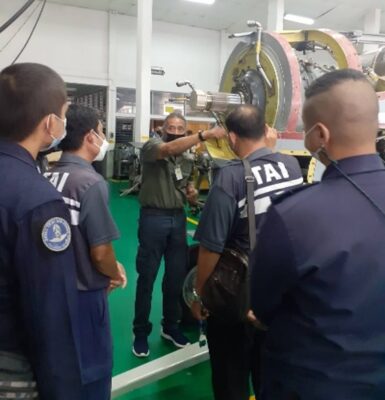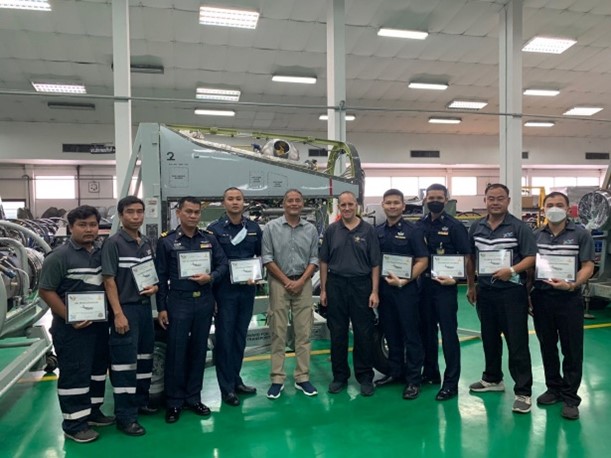Partnering with PKL: Gas Turbine and QEC Familiarization Course
October 25, 2023
For our partners who fly and maintain the T-56 Engine, PKL has developed a comprehensive training course for engine mechanics. The purpose of this contract is twofold:
- Provide a comprehensive familiarization class (“Fam Class”) on Gas Turbine Engines in general, as well as Quick Engine Change (QEC), in particular;
- Provide three (3) highly skilled US C-130 T56 Instructors to provide daily, over-the-shoulder/on-the-job (OJT) training to technicians for the period of one month.

The objectives of this Course are to enhance technicians’ capabilities in the following areas:
- Concepts, theories, operations, best practices, and proven procedures for the T-56 engine;
- Increase knowledge of and expertise in engine QEC;
- Increase engine maintenance and repair skill proficiency;
- Increase trouble shooting expertise (fault isolation, fault detection)
- Understand how to complete the installation of a QEC kit; and
- Be capable of preparing an engine for aircraft installation.
PKL’s instructors deliver an initial two-day “Fam Class” and then, after the class has been taught, the they dedicate their time to daily OJT. The initial “Fam Class” will establish a solid baseline of knowledge and then, during the ensuing month-long OJT, our instructors will be able to observe and document the students’ performance and offer on-the-spot training, mentorship, and guidance. Though the “Fam Class” is designed as an initial scene setter, the class (in whole or in part) can be used any time during the month of OJT, whenever the technician(s) require re-familiarization or additional classroom-based instruction. The combination of classroom knowledge and OJT will improve the technicians’ skill, performance, and capability.

The course focuses on the following areas:
1. Theory of Operation of Gas Turbine Engines
1.1 Gas Generator Section
1.2 Combustion Section
1.3 Power Turbine Section
1.4 Accessory Drive Components
1.5 Turboprop Theory
2. Engine Preservation Theory
2.1. Prevention of Damage
2.2 Levels of Preservation
2.3 De-preservation
3. Quick Engine Change Install (Lab/Practical Application)
3.1 Engine Logbooks and Serialization
3.2 Engine Hardware and Wiring Harness Installation
3.3 Accessory Component Install
4. Engine Test Cell Run Preparation (Lab/Practical Application)
4.1 Leak Checks and Component Security
4.2 Quality Assurance Inspection
5. Post-Test Cell Review
5.1 Performance Metric Review
5.2 Post Test Cell Run Leak Check and Component Security (Lab)
5.3 Inlet/Exhaust Cowling Installation
To learn how we can work together please visit us at https://omnispectraining.com/ or email us at kimberly.robling@pklservices.com
